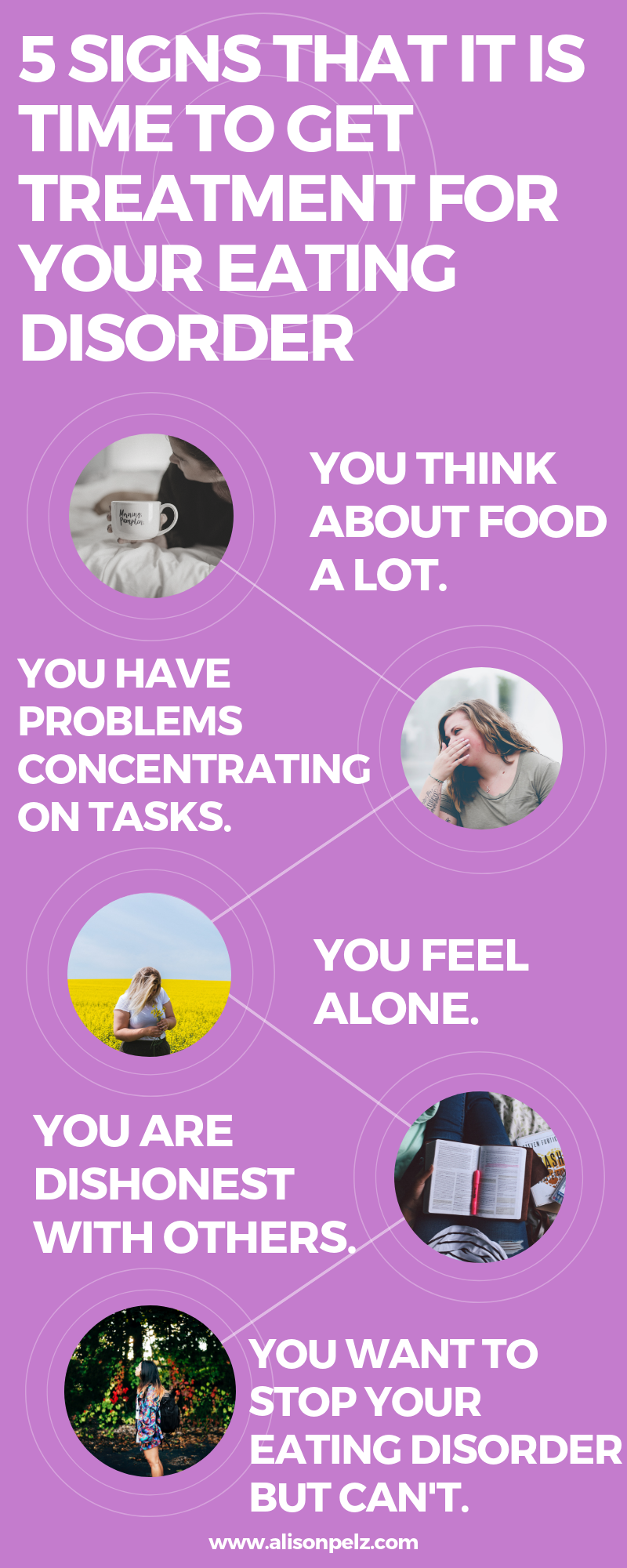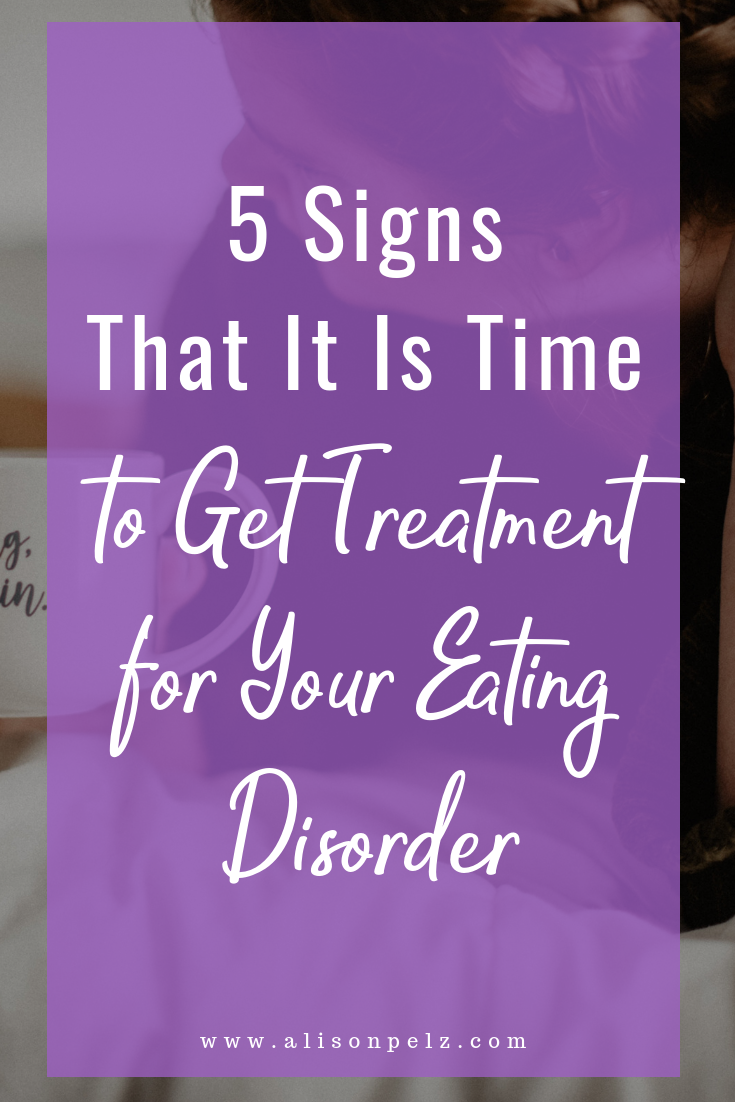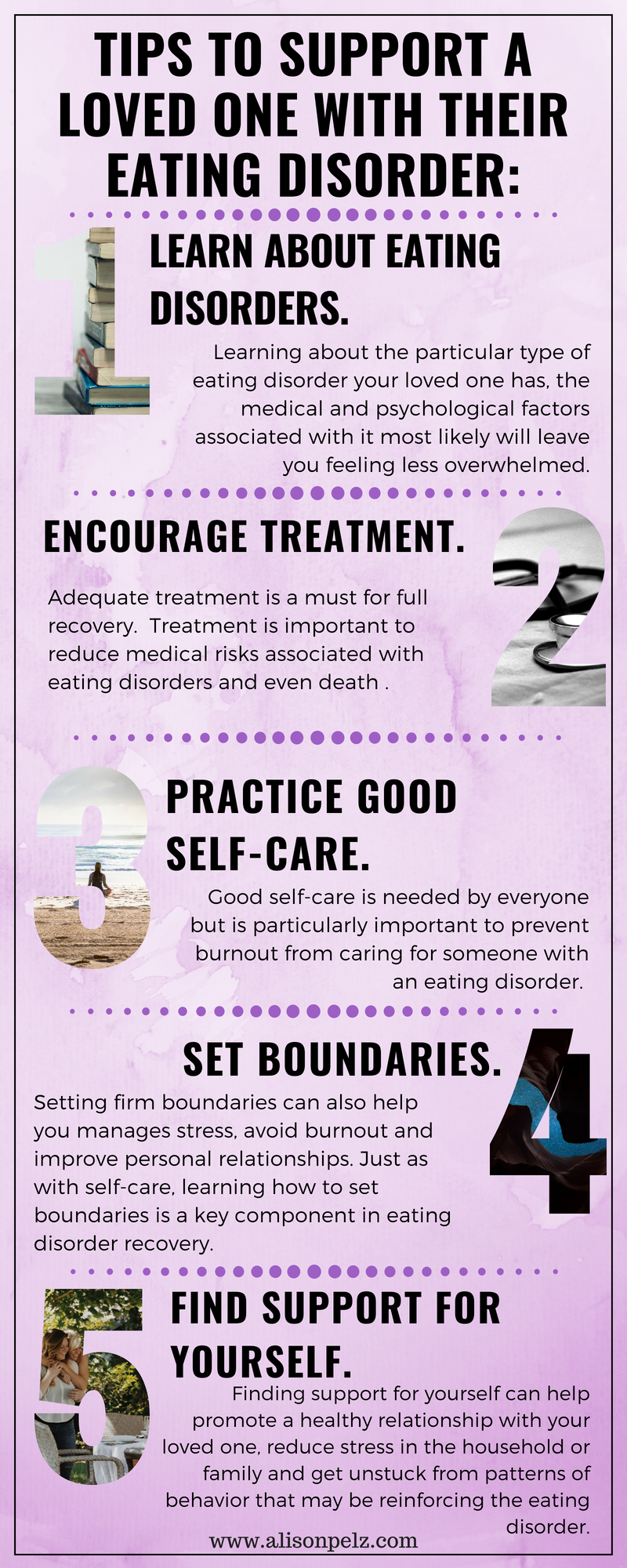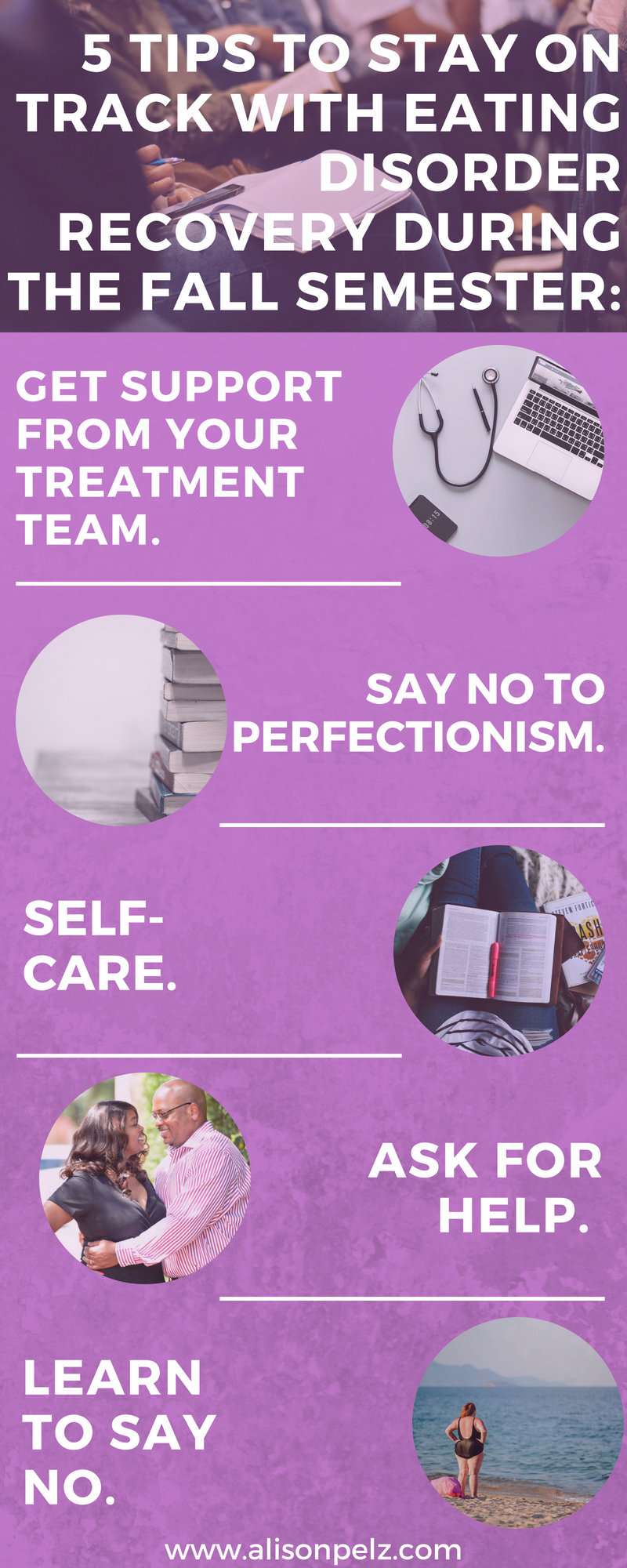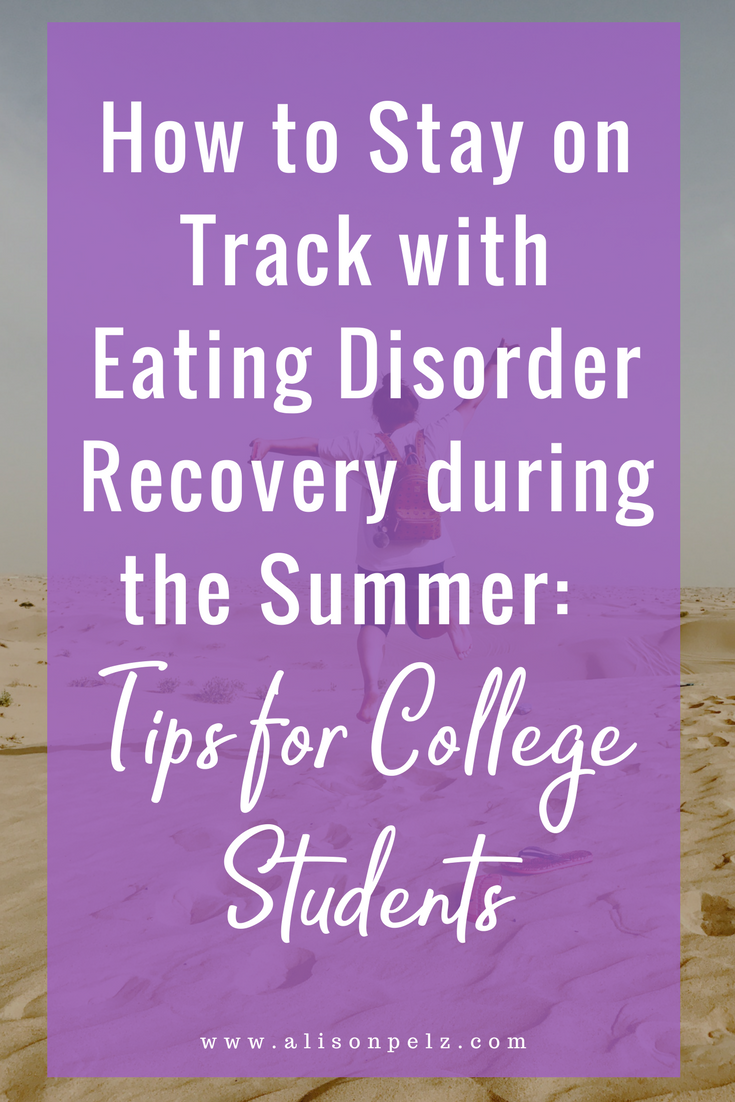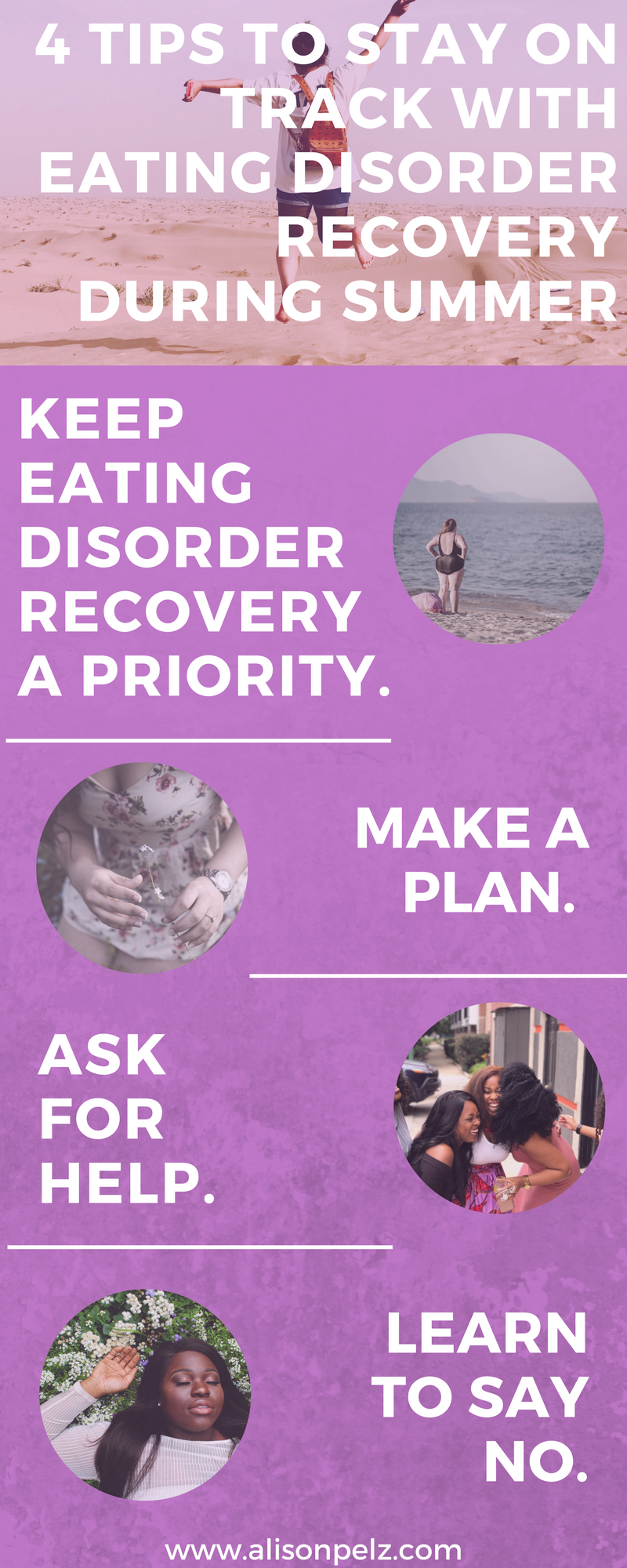Anticipating getting treatment for your eating disorder can be daunting for many reasons.
Maybe your friends and family are worried about you and pushing you to get treatment, but you feel like they don’t understand.
Perhaps you have gotten treatment and feel like it hasn’t helped.
Or you may feel like you can beat the eating disorder on your own.
You are not alone.
Most clients I see are often unsure if a) they want to recover, b) they can recover, or c) Their eating disorder is “bad enough” to need treatment.
Furthermore, you may feel ambivalent about getting treatment because your eating disorder may have helped you. What I mean by this is that your eating disorder may have stuck by your side, given you a sense of control, or provided feelings of safety. You may even feel like it is who you are.
On the other hand, treatment can offer new ways of coping, improve your self-confidence and self-esteem, and help you achieve goals that you never thought were possible.
Eating disorders don’t go away without professional treatment.
Untreated eating disorders usually get worse and harder to treat as time goes on. They can cause serious medical problems, some of which can result in death.
Here are 5 Signs that it is time to get treatment for your eating disorder:
1. You think about food a lot.
If you’re planning out your day around food as soon as your feet hit the ground-what to eat (and what not to eat), when, and how much- you might have an eating disorder. Thoughts about food take up so much head space and can be exhausting.
For example, you may have thoughts similar to these: “Did I make the right decision about what to eat?”, “She didn’t eat a snack. Should I be eating a snack?”. Your thoughts about food can be so pervasive at times that they lead to poor concentration, feelings of worry, sadness, and/or guilt.
2. You have problems concentrating on tasks.
Whether you are at school, work, or at home, it is hard for you to stay focused on the task at hand (or maybe hard for you to even get started). Your brain needs adequate fuel to function properly, and if you have an eating disorder, chances are you are not properly nourished. Poor concentration can be the result of inadequate and/or poor quality nutrition and erratic eating.
3. You feel alone.
Eating disorders can be isolating. Eating and food can be a big part of family and social engagements. You may find yourself avoiding social situations because the food associated with these engagements is too anxiety provoking. Or you may attend the social engagement, but feel distracted or not fully present because you feel worried about food or fitting in.
Poor body image may also cause you to avoid social situations. Feeling worried about how you look and what others are thinking of you may cause you to stay home. Isolation can make the eating disorder worse, increase feelings of depression and anxiety, and erode your self-confidence.
4. You find yourself being dishonest with others.
Most of us value honesty. Trustworthy and honest may be words that you use to describe yourself, except when it comes to your eating disorder. Often, eating disorder behaviors such as purging, binge-eating, and restriction are done in secret because you have feelings of guilt and shame around the behaviors.
5. You want to stop your eating disorders behaviors but can’t.
It is not unusual for people with eating disorders to try to get better on their own. You may have had success for short periods of time, maybe even months. But then life happens and the behaviors come back. Trust me, it is not because of lack of effort, intelligence, or motivation that you can’t stop your eating disorder on your own. It is the nature of eating disorders. They are complex, consisting of psychological, biological, and social factors. Adequate treatment by experienced clinicians is needed to help support you in your recovery.
This is a very short list of signs. Even if you experience one of them (or none of them but know that you are struggling), please talk to a professional. I know taking that first step to seek treatment is hard and scary, but if you have any inclination to improve your situation, seek treatment. The National Eating Disorder Association is a great resource.
Please call for a free 15-minute phone consultation to learn how I work with clients with eating disorders.

